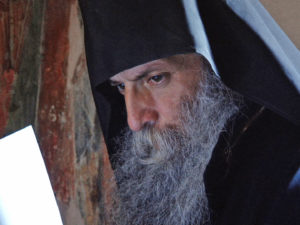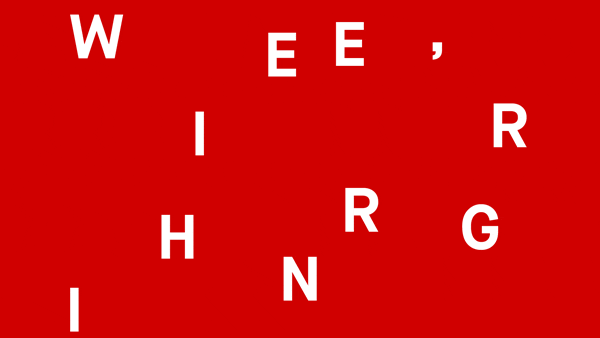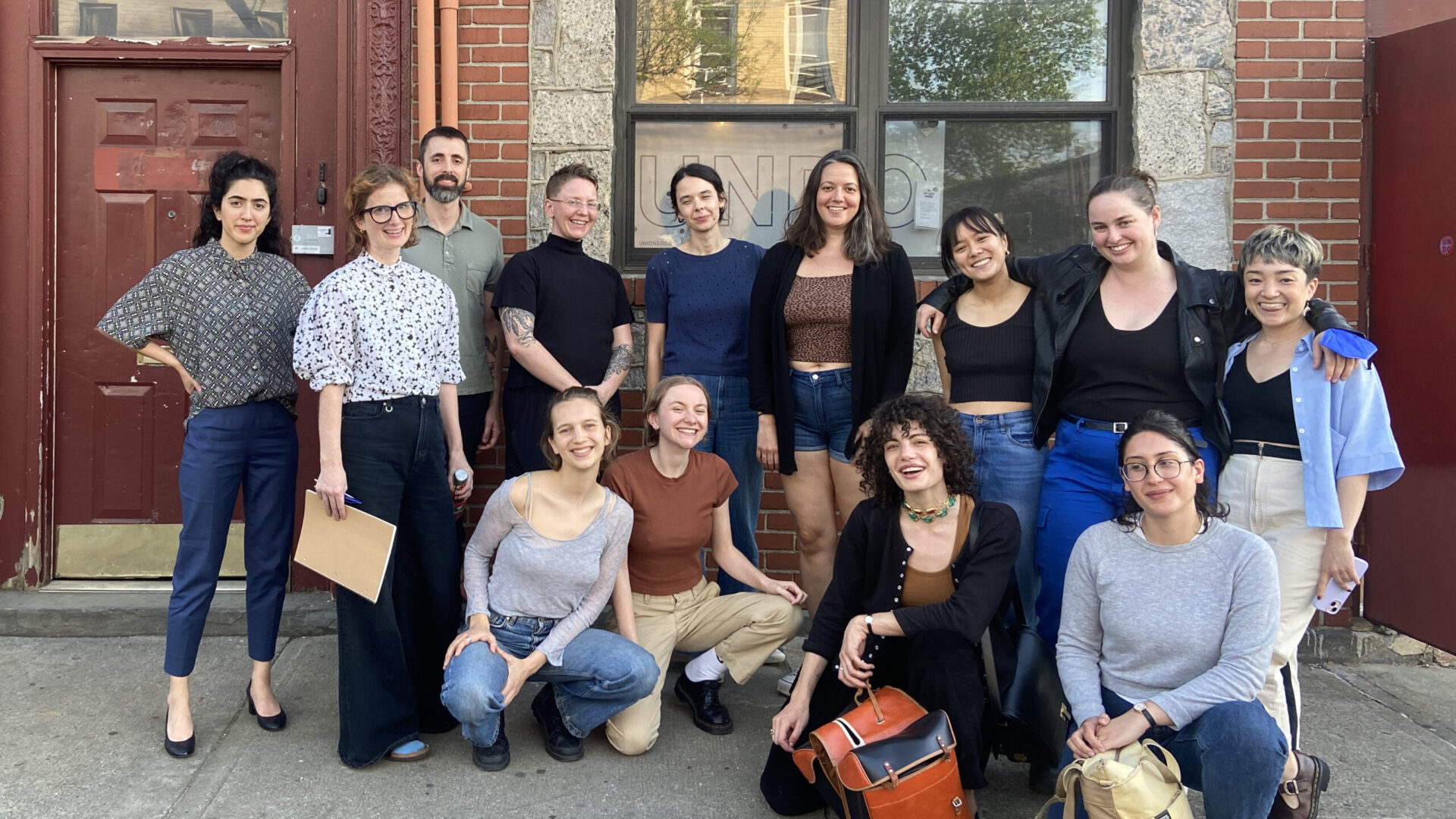In November, Estonia-born, UK-based filmmaker Kersti Uibo visited UnionDocs to show her most recent film This is the Day, which spends time with Serbian monk living in an medieval Orthodox monastery in Kosovo—and to teach a master class to our collaborative members. She joined me following the screening to discuss her approach to making and teaching meditative, non-narrative documentaries and the practicalities of devoting oneself to such work.
UnionDocs: You’ve had quite the week here.
Kersti Uibo: Yes, It’s been very good, because I was also doing a workshop here with the collaborative. The members of the collaborative went to a market, and in two-and-a-half hours they had to shoot three shots that were three minutes long. You choose a frame and don’t move the camera. It’s interesting that when you take a still, when you establish your frame, you have to be very intuitive. You have to be present, but you have to trust that something is going to happen within that frame. You have to cast the place. This is your stage. It is very powerful because you have to believe that there is something happening within that frame, some movement or no movement. Or then you cast the people who are going to move within that frame. In that way you learn a lot about filmmaking very quickly.
UD: How do you teach that awareness?
KU: The external world is moving all the time and changing. We can’t control the external world. We can be aware of our internal world—if my internal world is peaceful, then I have an internal awareness. If I’m focused on internal awareness, I’m able to see everything outside with attention to detail. I’m only interested in filming the present. I never film anything that has happened before, like archival material. If my focus is in the present moment then I have to be fully present. Editing is also very meditative. You are watching the same material thousands and thousands of times and every time you have to be able to see something new in it.
UD: How do you edit these non-traditional stories when you “ask the viewer to set aside any expectations of hearing a ‘story’ and instead to observe quietly as in life?”
Order KU: I didn’t want it to be anything. I think one should not go into a film with a certain idea of what you want. You can do a lot of research. You decide the place and the people that you will film, but then you have to let go of everything and just be immersed in the present moment. I have to surrender myself as a director. Then also in the editing process, there is a lot of surrendering, surrendering your will to the material you have shot. That is how a film born. Thus it is impossible to say there is a story I want to make.
UD: What does that surrendering look like in the editing process?
KU: This is an interesting question. These things are very hard to put into words. The camera eye is a lot faster than the human eye. When you start watching the material, there is so much more that we can grasp. I don’t shoot many close-ups. When you have a wide shot there is so much information that you don’t even see while shooting. With attention to detail, you start noticing very little things, and if you don’t have a lot of action happening then you become more and more sensitive to detail. Something which at first glance you might not even notice suddenly becomes a major event because your awareness becomes so astute that you are seeing things. Surrendering into the material is when you start noticing all these tiny little changes that at first glance you don’t see and then they start working with you. There is a dialogue between this material and the filmmaker. Within this dialogue, things are being born.
UD: So where does the research fit in?
KU: The research period is important for me with documentaries because I feel that I’m on the border. I’m not doing documentaries in the traditional way anymore. When you go to make a documentary, you have to really research the place and the story, and I think now this work was born because I surrendered myself to this material. I had no idea what would happen. So now the research period is different.
I know what I don’t want. Research is a thing where you become aware of what you definitely don’t want—it is the process of deleting. You delete a lot of things and seethe core that remains. That core you are going to film. I found that there was a similarity with a sculptor’s work. You choose the rock and you believe in that rock, and you start chipping away at unnecessary things, and then eventually the sculpture comes out from there. You have to trust that its there
UD: How can new filmmakers start this practice?
KU: You don’t have to travel anywhere. You can watch out of the window of your room and make a film. There have been many films done from the window. I saw a man who was ill make a film from his bed because he couldn’t get out. He managed to make a great film showing his room. You actually travel within yourself when you have that focus, and you become still. From that stillness you can watch anything, you can film anything. You actually immerse yourself in what you are filming and you become one.
UD: How do the realities of permission and travel affect this process?
KU: I learned a lot from this film because there were so many rejections and prohibitions because it happened after the war. I learned now that I don’t need to go to these places and waste time on all these “no”s. I’d rather concentrate and do something where I don’t need all that. I’m not going to waste so much time anymore, but I’m very happy I did it.
One thing I didn’t know is that when you start filming a monk, you have to become a monk, in a way. In some ways I wasn’t planning to make a film about a monk. I was trying to see what I would respond to. It could have been anybody. It just so happened that I was drawn into this particular person, and he happened to be a monk. We all have events in our lives: birth, marriage, divorce or death. In a monk’s life, they are ritualized. They are big events. For a filmmaker it is exciting to film things that are ten times bigger. They have this form as well. I was very lucky that the place was on top of a hill and you get this different perspective on a different level. Then I also realized that in the wintertime monks are just black dots on a landscape. It’s like looking at human life. Black dots when you look from a far perspective are all similar. They all have beards and they all are in black clothes. You can’t recognize one. I liked that they became symbolic dots.
UD: My friend and I were trying to figure out which one was your monk
KU: I like that you can’t work it out, because for me they are symbols. It wasn’t a portrait of a monk. For me its a portrait of human life and the wholeness of life—and us being dependent on nature, our nature and nature outside. It’s all the same. That’s why the seasons were very important.
UD: The setting of the film, in Kosovo after the war, is already symbolically evocative for many people. Why did you choose to only mention it in the titles at the beginning of the film?
KU: One of the reasons I did go there is that I know that invisible things become visible in the conflict. I’m interested very much in the invisible world. In a conflict, everything becomes visible. There’s honesty in it. In that sort of area, you are so naked. The human being is so naked. You don’t pretend anymore, because you are down to that sort of bare level of existence. Instinctively I went there. It was not that it’s about Serbia or Kosovo. It’s just how we function in a conflict. I’m really interested in the core inner values of human beings; what actually moves us; who we are. I’m interested in who I am, how human beings are in this world. These are inner values. This is what interests me. Filmmaking itself is very naked because everything you have is there on the screen. If the filmmaker has a judgment, then it is on the screen. If the filmmaker has neutralities, they are on the screen.
UD: These are not traditional commercial films. How do you find an audience for them? Your films were recently uploaded to Vimeo on Demand.
KU: Once you’re in the realm of poetic film … poetry is not very popular, as you know. Poems are not read widely. But it doesn’t mean that people should stop writing poems or make poetic films. If that is your nature than that needs to come out. As for Vimeo, it was very interesting because one of my pupils said that [my] films should be put on Vimeo. I’m happy that now they’re there.
Purchase UD: You have made it work financially though.
KU: I’ve been fortunate that I’ve been able to do it. I’m very thankful that I found the way to do it. A film like that that changes you. The last filmmaking process was so exciting, especially while editing. I knew always that sound and picture are equal partners and that film consists of both but in this particular film I realized that it was really sound that eventually established the flow so I am much more aware of the sound now.
UD: I like that idea of film as self reflection and each time you create, it changes who you are.
KU: I felt that big change. Now I need to get used to this change. It becomes part of me. It is part of me now. Something is gathering inside me slowly until it is full and then a new form is born. It takes a few years in between. I’m not like a machine that can just throw out another thing for entertainment
UD: What do you do in between films?
KU: A lot of things come to you when you find that equilibrium within yourself. Then things start happening. I like to give master classes about filmmaking and I’m teaching as well. I give practical workshops, which I enjoy very much. Sometimes I’m an editing tutor. People like to show me their rushes when they are totally lost.
I’m involved with film as a teacher in art colleges. It’s always short workshops. I do not want to be a full-time teacher because I need to be free to be able to go to a particular place when something happens. Like sitting here now. I almost would have been in Estonia where I would have been a tutor for three months. But as it happened I got a letter when I had already bought a ticket to India. I was teaching in Delhi instead.
I have done a few things in television. The viewers’ attention needs to change. Everything is changing in the exterior world so much that there is a time now when people need to have some peace because they get tired of the constantly changing images. There is too much visual noise. When you are sitting everybody’s always looking at something and no one is actually listening to themselves. That practice when you have that minimal frame helps you to see things more intensely.






